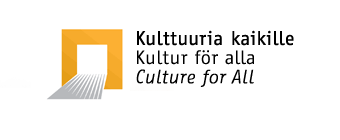Workshop 15.12: Helsinki Art Institutions for Equality. Register by 8.12.
Artists are increasingly concerned with urgent ethical issues of the current political climate, from migration to gender policies and military conflicts. Biennales and museums are increasingly held accountable for how they address questions of equality in their practices. Simultaneously, these concerns are present in the programming and texts many art institutions are producing.
Major art institutions of Helsinki have come together to develop strategies for addressing issues of diversity, antiracism, gender equality, and labor rights in their practices.
Workshop Helsinki Art Institutions for Equality
Place: Kiasma Museum of Contemporary Art, Seminaari-tila
Time: 15.12. 12-16 pm
RSVP to the workshop by 8.12 by sending email to mail (a) terikehaapoja.net
Participants Baltic Circle International Theatre Festival,
EMMA Espoo Museum of Modern Art, Frame Contemporary Art Finland, Gallery Huuto,
Goethe-Institut Finnland, Helsinki International Artist Programme HIAP,
Helsinki Art Museum HAM, IHME Contemporary Art Festival, Kone Foundation,
Kiasma Museum of Contemporary Art / National Gallery, PUBLICS and Zodiak -
Center for New Dance call for other Helsinki art organizations to join the
challenge.
The participant organizations will gather on Friday 15.12. to share tools and draft their individual strategies. This collection will be published in January with a joint statement.
Helsinki Art Institutions for Equality
More information: mail (a) terikehaapoja.net Terike Haapoja, process facilitator
Please note that due to limited space 1-2 persons are invited to attend on behalf of each organization.
The workshop is free of charge.
The workshop will address questions such as:
1. How, in practice, will your organization work towards reinforcing equality and supporting processes of decolonization? This may include securing that a diverse group of perspectives are heard and represented in both organizational structures as well as programming ,as well as deconstructing colonizing or sexist undertones from displays and discourses around them.
2. Economic inequality is one of the biggest causes of structural inequality and homogenization of the international art world. Fewer and fewer people can afford to be an artist. How is your organization fighting economic inequality and securing the basic structures of the welfare state?
3. How is your organization working towards protecting freedom expression, while taking a stand against discriminative and hate speech?
4. How is your organization measuring artistic value, besides those of visitor count or sales prizes on the art market?
5. How are fair pay and equality addressed in your organization's labor strategies?
